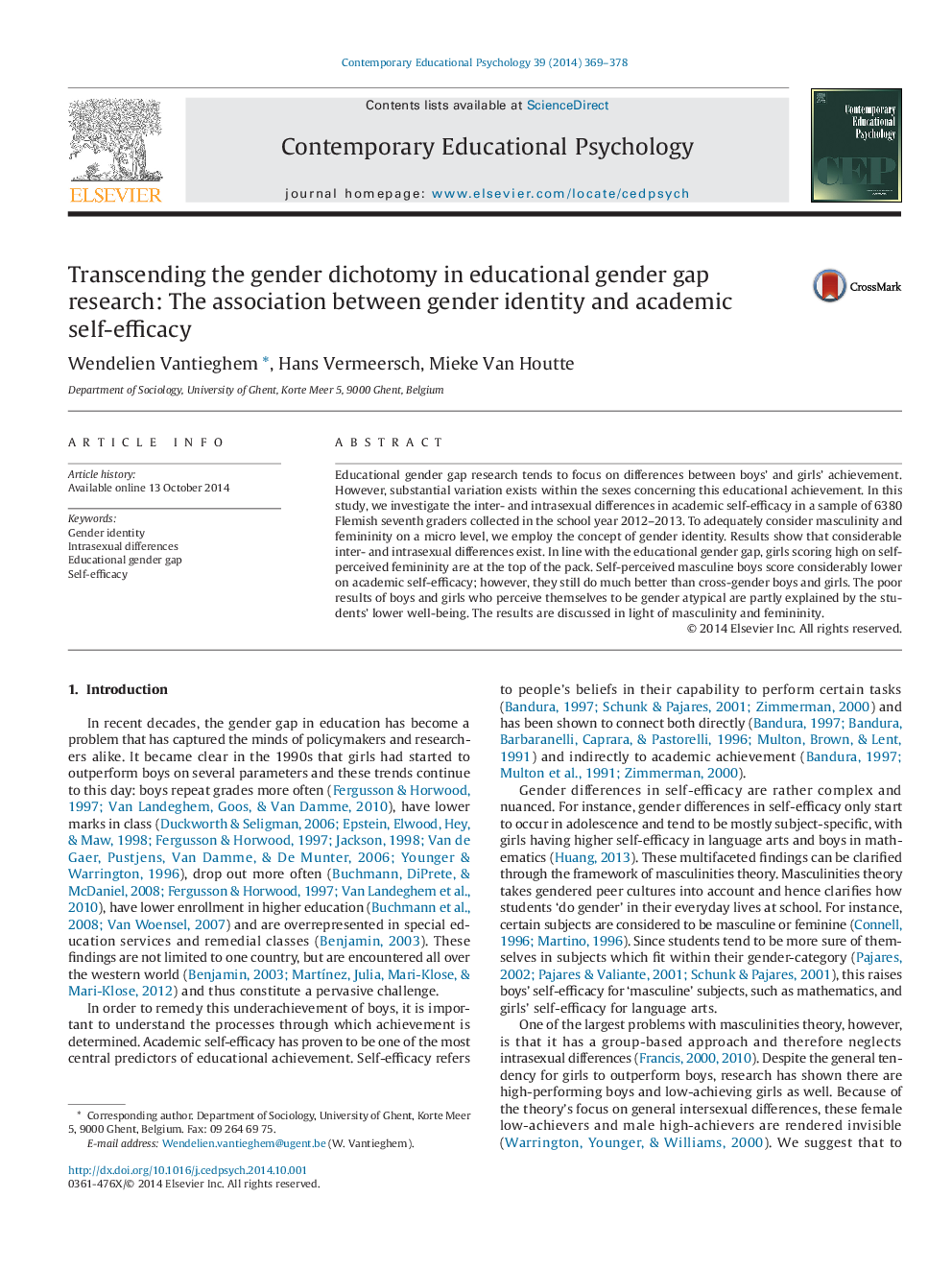| کد مقاله | کد نشریه | سال انتشار | مقاله انگلیسی | نسخه تمام متن |
|---|---|---|---|---|
| 352651 | 618607 | 2014 | 10 صفحه PDF | دانلود رایگان |
• We study inter- and intrasexual differences in academic self-efficacy of seventh graders.
• Girls, who feel gender typical, score highest on academic self-efficacy.
• Boys and girls, who feel gender atypical, score lowest on academic self-efficacy.
• Well-being explains part of the association between gender identity and self-efficacy.
Educational gender gap research tends to focus on differences between boys' and girls' achievement. However, substantial variation exists within the sexes concerning this educational achievement. In this study, we investigate the inter- and intrasexual differences in academic self-efficacy in a sample of 6380 Flemish seventh graders collected in the school year 2012–2013. To adequately consider masculinity and femininity on a micro level, we employ the concept of gender identity. Results show that considerable inter- and intrasexual differences exist. In line with the educational gender gap, girls scoring high on self-perceived femininity are at the top of the pack. Self-perceived masculine boys score considerably lower on academic self-efficacy; however, they still do much better than cross-gender boys and girls. The poor results of boys and girls who perceive themselves to be gender atypical are partly explained by the students' lower well-being. The results are discussed in light of masculinity and femininity.
Journal: Contemporary Educational Psychology - Volume 39, Issue 4, October 2014, Pages 369–378
